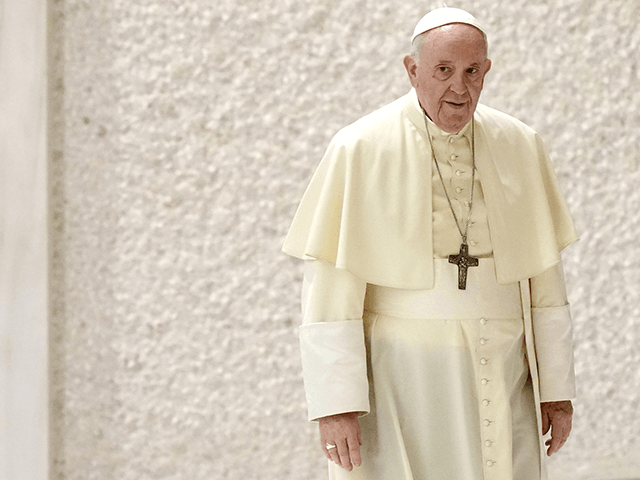ROME, Italy — Pope Francis has defended the 2018 Vatican deal with China over the naming of bishops but acknowledges that “mistakes” can be made.
“China is not easy, but I am convinced that we should not give up dialogue,” the pope said in an interview with Spanish radio this week. “You can be deceived in dialogue, you can make mistakes, all that… but it is the way.”
“Closed-mindedness is never the way,” he continued. “What has been achieved so far in China was at least dialogue… some concrete things like the appointment of new bishops, slowly… But these are also steps that can be questionable and the results on one side or the other.”
According to China expert Father Gianni Criveller, of the Pontifical Institute of Foreign Missions (PIME), the pope was responding to the frequent criticisms that the Vatican-China deal has brought forth little fruit for Chinese Catholics and instead has muzzled the Vatican from speaking out against China’s egregious human rights abuses.
The pope’s acknowledgement that “China is not easy” seems to be a concession in comparison to past statements “that only underscored the greatness of Chinese civilization,” the priest noted Thursday.
The affirmation that “you can be deceived in dialogue, you can make mistakes” means the pontiff does not rule this out, Criveller added.
“So he, too, fears that the outcome of the agreement that sanctioned the dialogue between China and the Vatican could end up like this,” the priest said. “The fact that the pope himself admits this possibility shows that he is aware of the situation on the ground.”
“He has taken note of the many concerned voices that have been raised in recent years from within China and from those who follow the Catholic communities in that country,” he said.
In his initial assessment of the outcomes of the accord, the pope “finds them rather sparse, I think below hopes and expectations,” Criveller stated.
“In fact, the bishops appointed are very few compared to the needs of the people of God and some of them had been chosen before the agreement itself,” he noted.
“We are not aware of any other benefits deriving from the agreement,” the priest added. “Indeed, as the news from Catholic communities shows, the situation of believers is increasingly difficult.”
The 2018 Vatican-China deal, renewed in 2020, has been one of the most criticized and controversial measures of the pope’s 8-year pontificate.
In June 2020, the U.S. Bishops published a searing statement calling out the Chinese Communist Party (CCP) for its ongoing violations of religious liberty and human rights.
“Since 2013, religious persecution has intensified under a government campaign for the ‘sinicization’ of religion — an effort to have religions conform to government-sanctioned interpretations of Chinese culture,” the bishops noted.
“While the Vatican has reached a provisional agreement with China on the issue of episcopal appointments, reports of persecution by the Chinese government persist as underground churches are closed and their priests detained, crosses destroyed, bibles confiscated, and children under 18 forbidden from attending Mass and receiving religious instruction,” the bishops said.
Also in 2020, Lord Christopher Patten, the last British governor of Hong Kong, said the Vatican “got it badly wrong about China” in its 2018 accord with the Communist Party on the naming of bishops.
“It is very sad, but under Xi Jinping things have gone backwards in China,” Patten told the Tablet, a UK-based Catholic journal, adding that it was “bizarre” for the Vatican to warm to the Communist Party at this time.
“How can you have a rapprochement on religious issues with China when there are a million or more Uighur Muslims locked up in Xinjiang?” Patten asked.
Patten, who was the governor of Hong Kong from 1992 to 1997, said he understands why the Vatican has an interest in China but questions the opportuneness of its timing and method.
“Of course I am in favour of them trying to do what they can to make it easier for Catholics and Christians to worship in China,” he said.
“I just think this was an extraordinary time to be doing this with an administration in China which has gone back on human rights – which is making things tougher on human rights. That is what Xi Jinping has been doing,” he said.

COMMENTS
Please let us know if you're having issues with commenting.